On December 2, 2024 (Monday), at the 15th floor CraftBase of DENSO Nagoya Office, we hosted a Creators' Talk featuring Danish-based artist Pavels Hedström, introduced to us by Laere Inc. The event explored the theme:
"Exploring the Perspectives and Roles of Artists and Designers in Accelerating the Realization of a Sustainable Society."
Creators' Talk is an irregularly held event within DENSO, where artists and designers from various fields are invited to give lectures and engage in discussions with employees.
This event aimed to explore creative perspectives and concrete methods for building a sustainable future. Employees from various departments participated, making it a valuable opportunity for sharing new ideas and viewpoints.
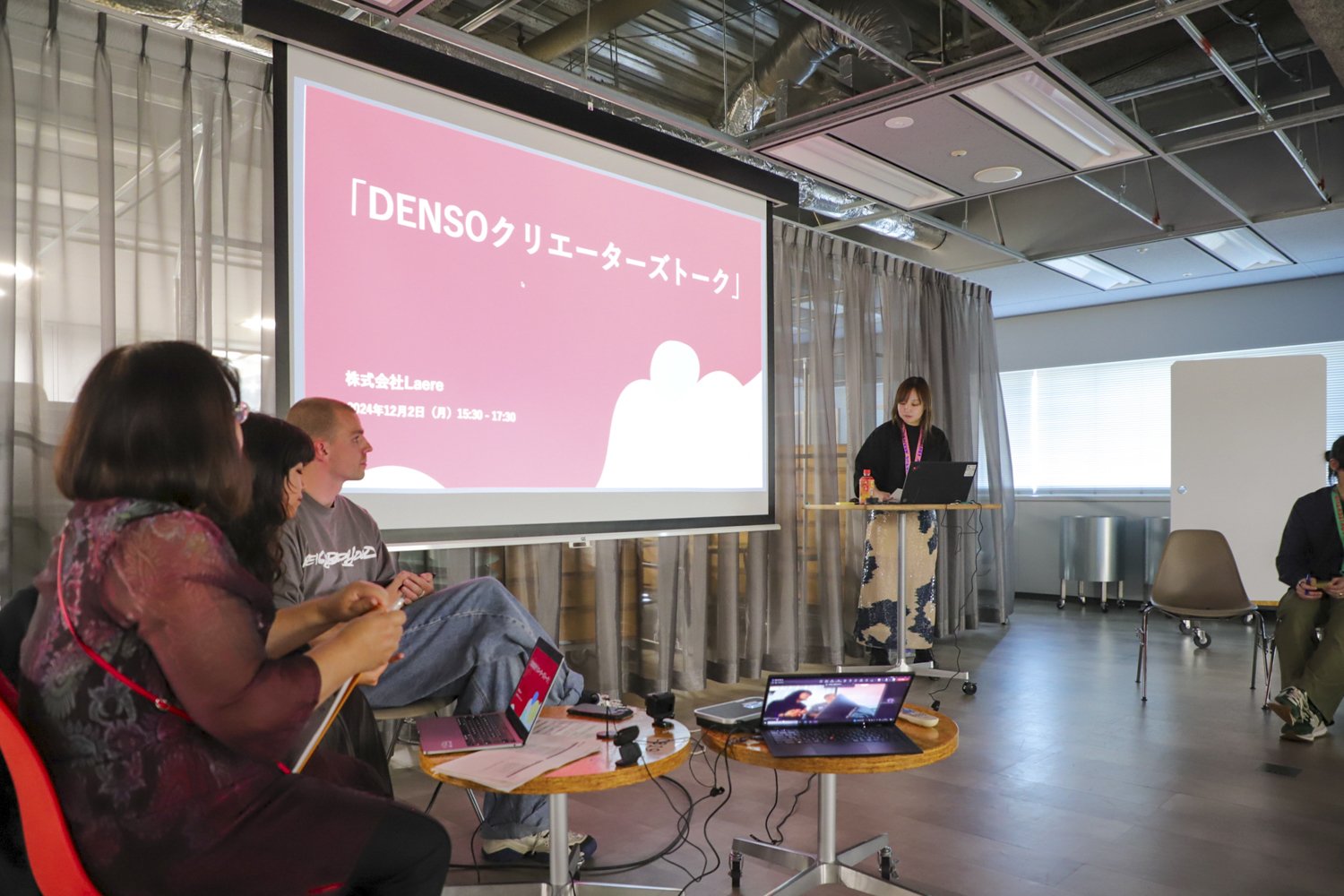
Part1
In Part 1, Pavels Hedström shared insights on his past projects, drawing from his experiences and perspectives.
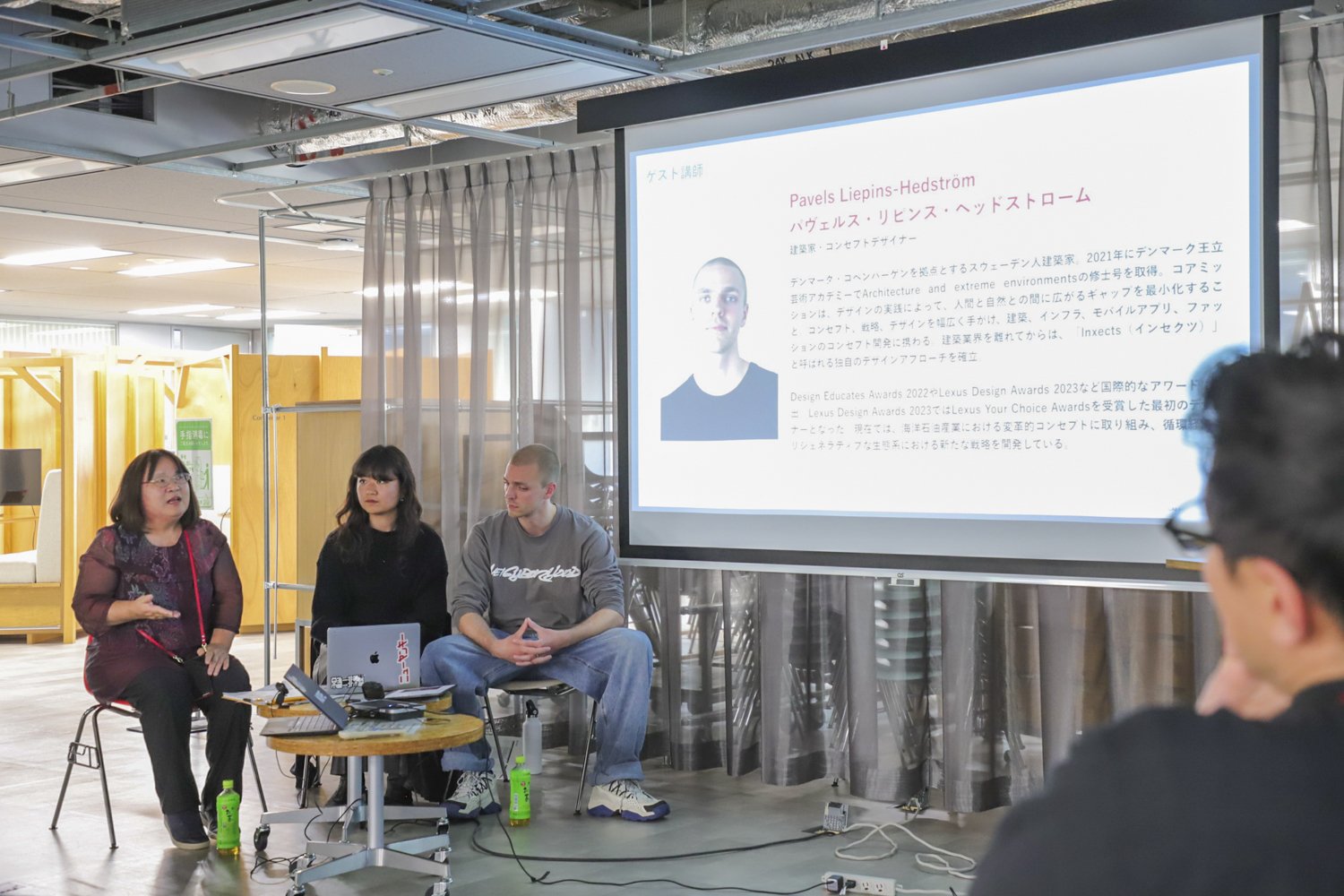
A photograph captures a panel discussion with three speakers seated. A screen on the right displays an introduction slide about guest speaker Pavels Hedström, featuring his profile picture along with details of his achievements as an architect and concept designer, as well as his awards in design competitions. One of the panelists is speaking, while the other two listen attentively. Participants in the foreground are focused on the screen. The relaxed atmosphere, with laptops and beverages on the tables, reflects an engaging and informal presentation setting.
The Key to Successful Collaboration
Pavels emphasized, "Good collaboration requires good communication. Working with people from diverse backgrounds and perspectives generates new ideas."
He also stressed the importance of creating an environment where everyone feels relaxed and recognized for their skills, as this is key to project success. This advice is highly practical and applicable even in daily work environments.
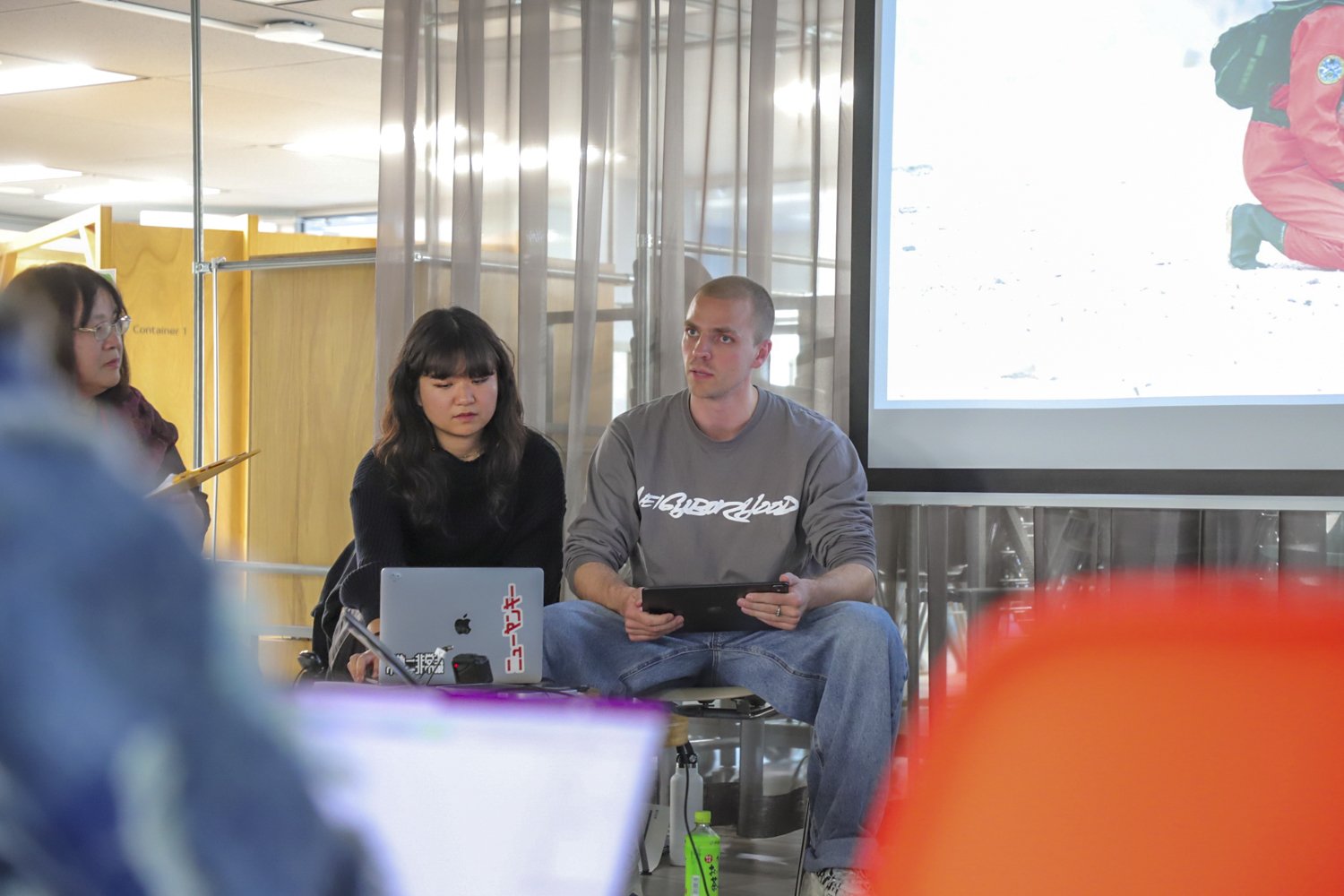
Choosing a Theme You Are Passionate About
Pavels highlighted the importance of choosing a theme that genuinely interests you.
"If you're passionate about the problem you're working on, finding solutions becomes enjoyable, leading to better ideas."
He also noted that choosing a theme that personally resonates with you helps inspire and involve others, which can boost a team's overall motivation.
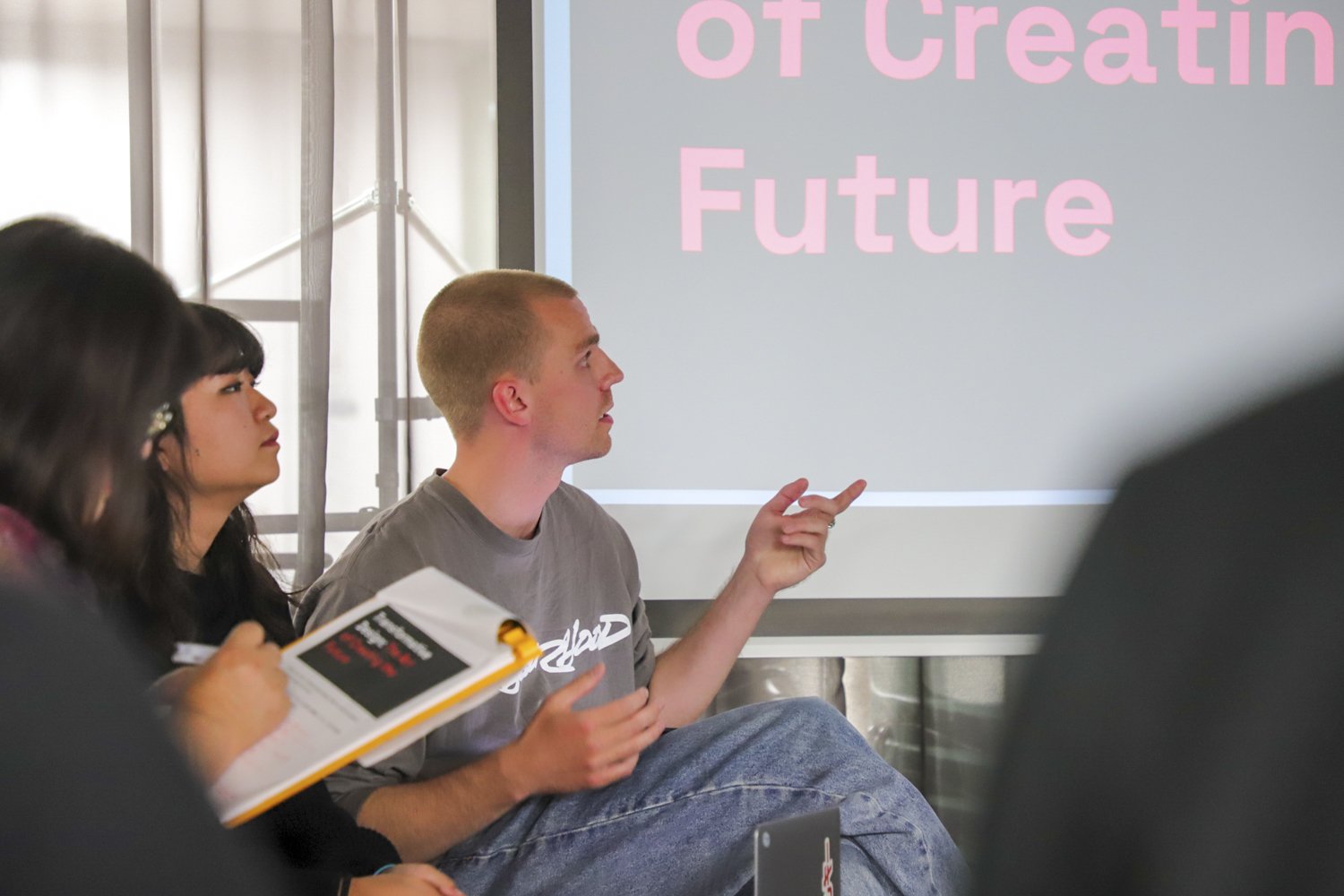
Fog-X Jacket and Sustainable Design
Pavels introduced one of his most well-known works, the Fog-X Jacket, a backpack-style device that collects fog from the air to generate drinking water.
This device, which won the Lexus Design Award, later evolved into a jacket format.
"Fog-X Jacket is not just an idea; it is a practical tool designed to address environmental challenges," Pavels explained.
He highlighted how sustainable design is achievable by combining eco-friendly materials with efficient technology. This discussion sparked great interest among participants, leading to a lively Q&A session.
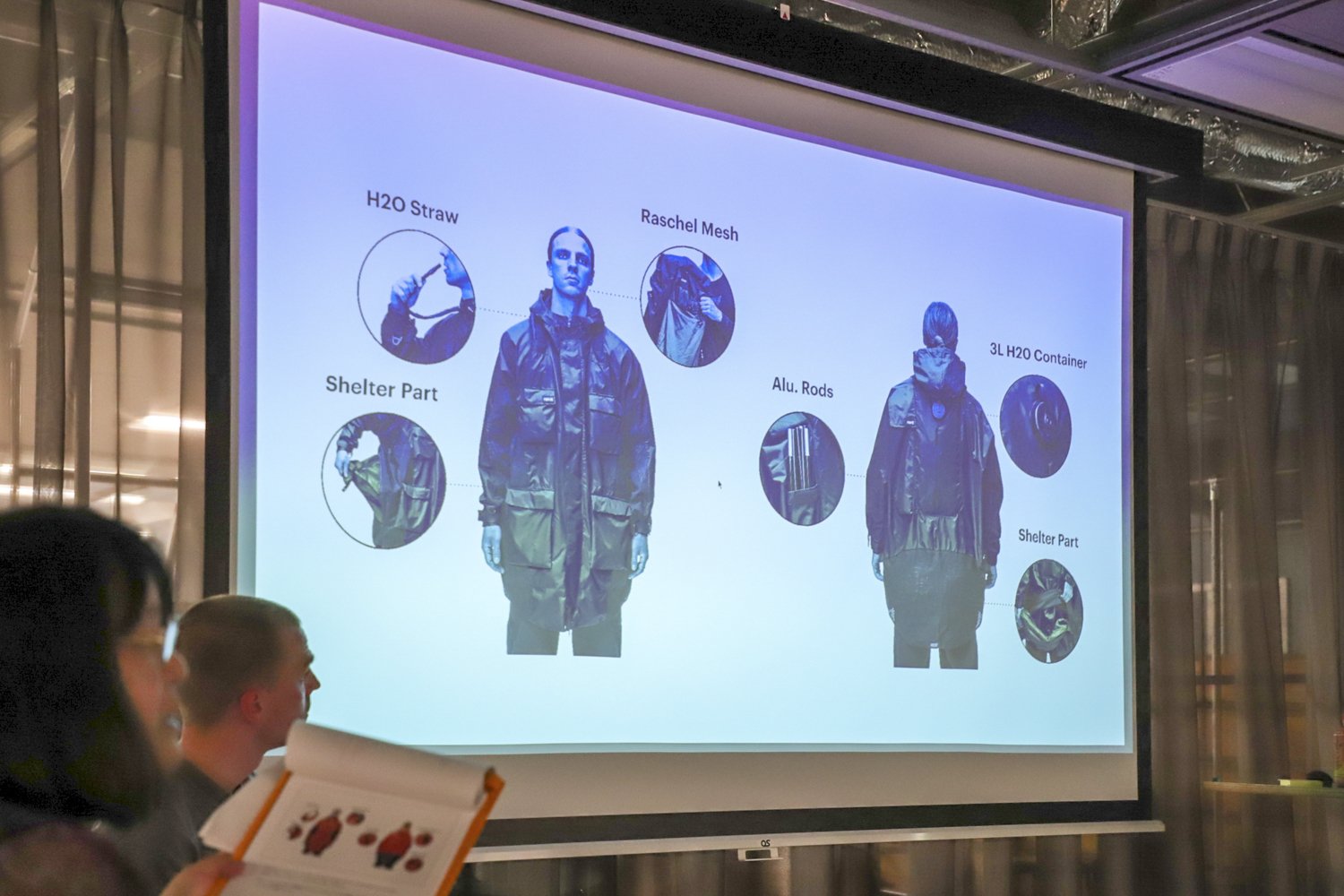
16-Step Design Process
Pavels introduced his "16-Step Design Process," which he developed over years of experience to enhance creativity. Some key steps include:
Writing down ideas on paper
Conducting brainstorming sessions with the team
Creating small prototypes for testing
Gathering feedback for improvements
Testing the design in real environments to ensure practicality
He emphasized that every step is crucial, and taking the process seriously leads to better designs.
Pavels also noted that "Failure is part of learning," stressing the importance of refining ideas through iteration rather than fearing mistakes.
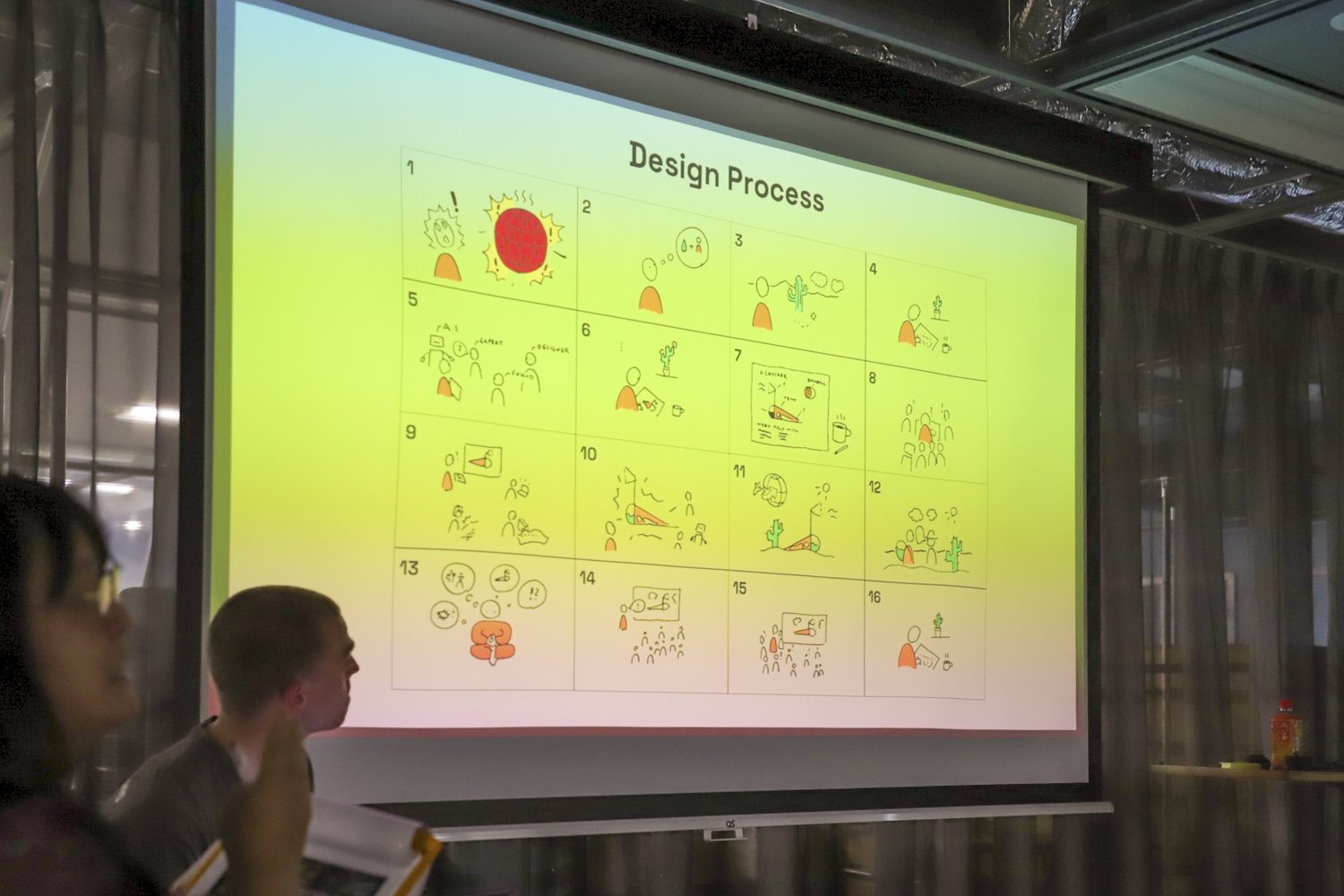
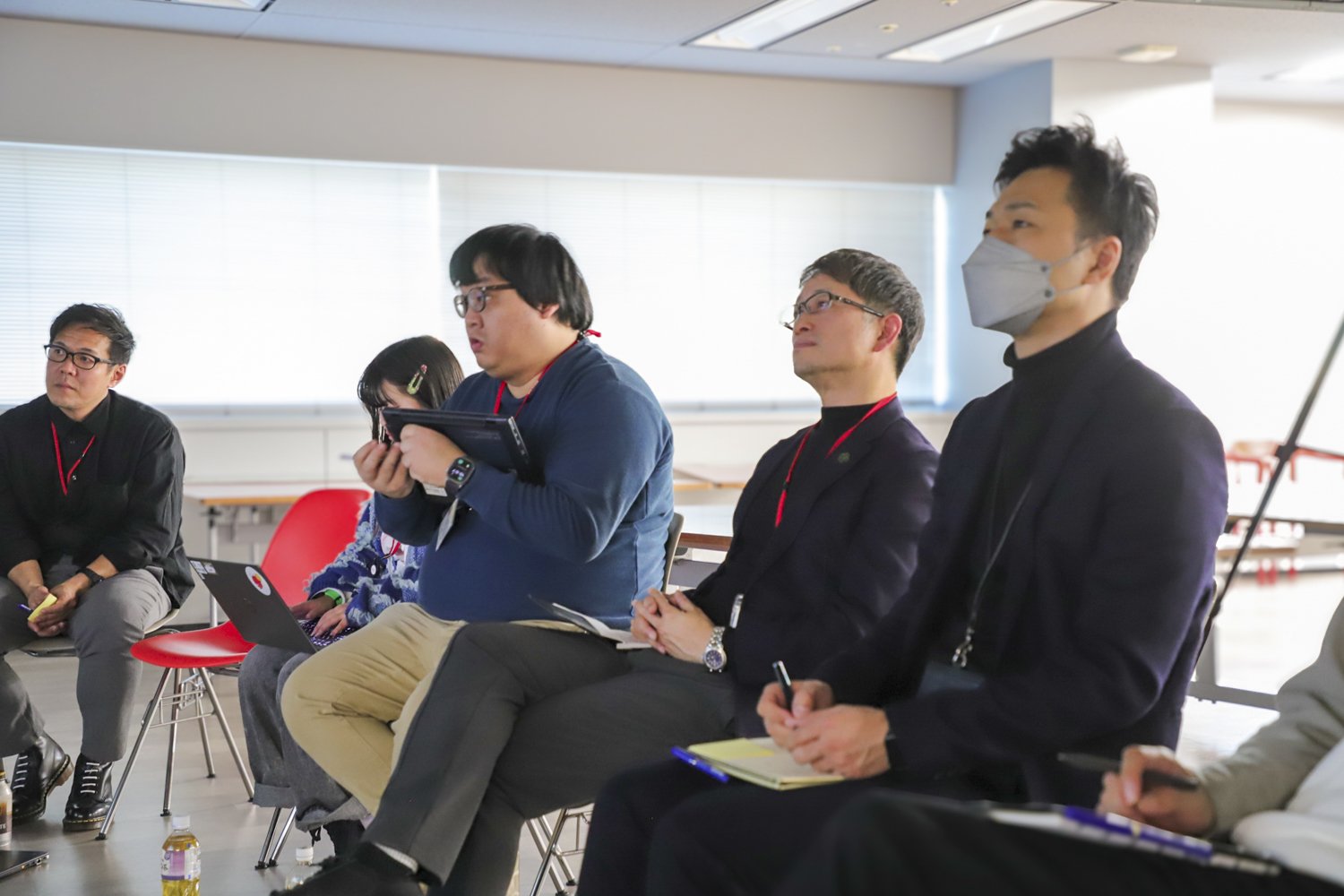
The Power of Storytelling
In his lecture, Mr. Pavels stated that "storytelling supports design." He explained that a simple and memorable story, such as the one behind the Fog-X jacket--"Wearing this jacket allows you to produce your own water"--captured the interest of many people. He emphasized that effectively conveying the purpose and value of a design through storytelling is the key to success.
Storytelling has the power to transform a design from a mere idea into something that truly resonates with people. Through Mr. Pavels' lecture, we learned the importance of considering how we communicate our ideas.
Part 2: Q&A Session
In Part 2, Laere Inc. and Pavels introduced DENSO's HX initiative, followed by a Q&A session with participants.
A photograph captures a whiteboard covered with sticky notes featuring handwritten questions from attendees.
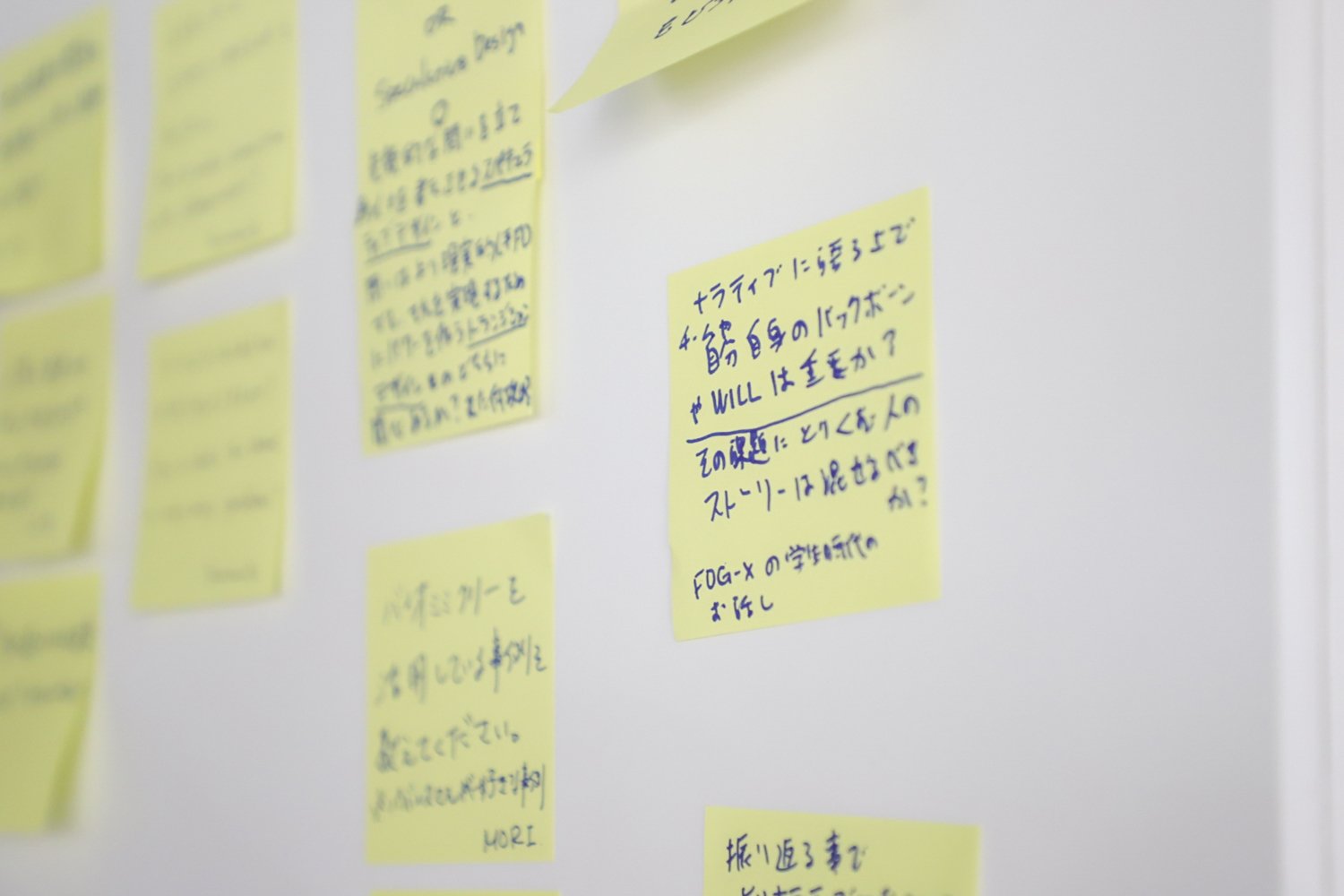
Q. What are your thoughts on sustainable happiness?
A. The choice of words is crucial. While many companies use terms like "sustainability" and "happiness," these can sometimes feel empty. To truly achieve a sustainable society, we must use specific, action-oriented language. Japanese philosophies like Zen and Shinto offer valuable insights into this pursuit.
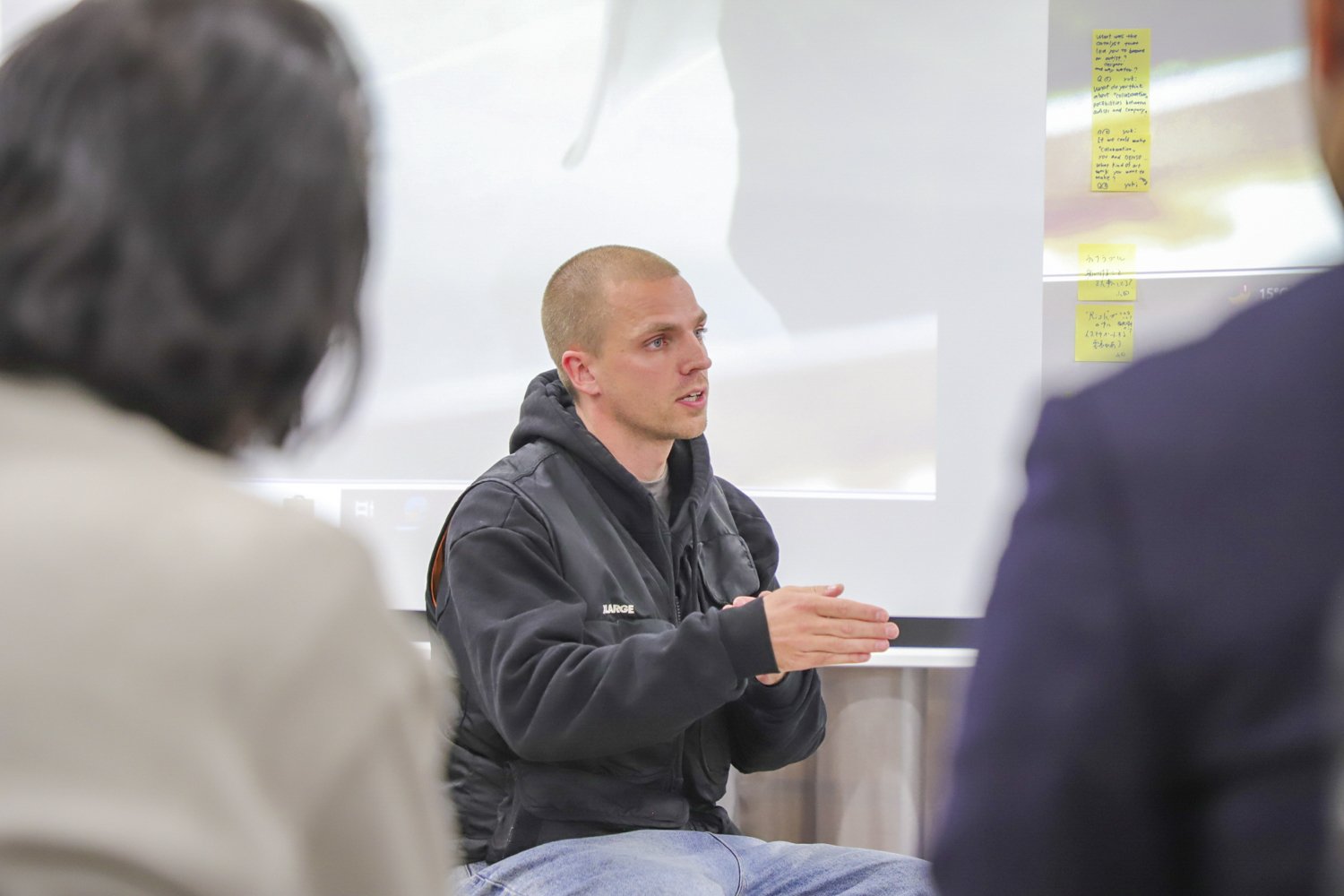
Q. Should we focus more on speculative design (posing radical questions) or transition design (solving real-world issues)?
A. Both are important. Speculative design helps explore future possibilities, while transition design addresses current problems. I combine both approaches--posing bold ideas while prototyping how they can be realized. Designers should utilize both methods depending on the context.
Q. What is your perspective on failure and hope in the creative process?
A. A strong, hopeful story is essential in the design process. A well-documented and conceptually solid prototype is never truly a failure, even if it doesn't work efficiently. If the idea is compelling, the risk of failure is minimized.
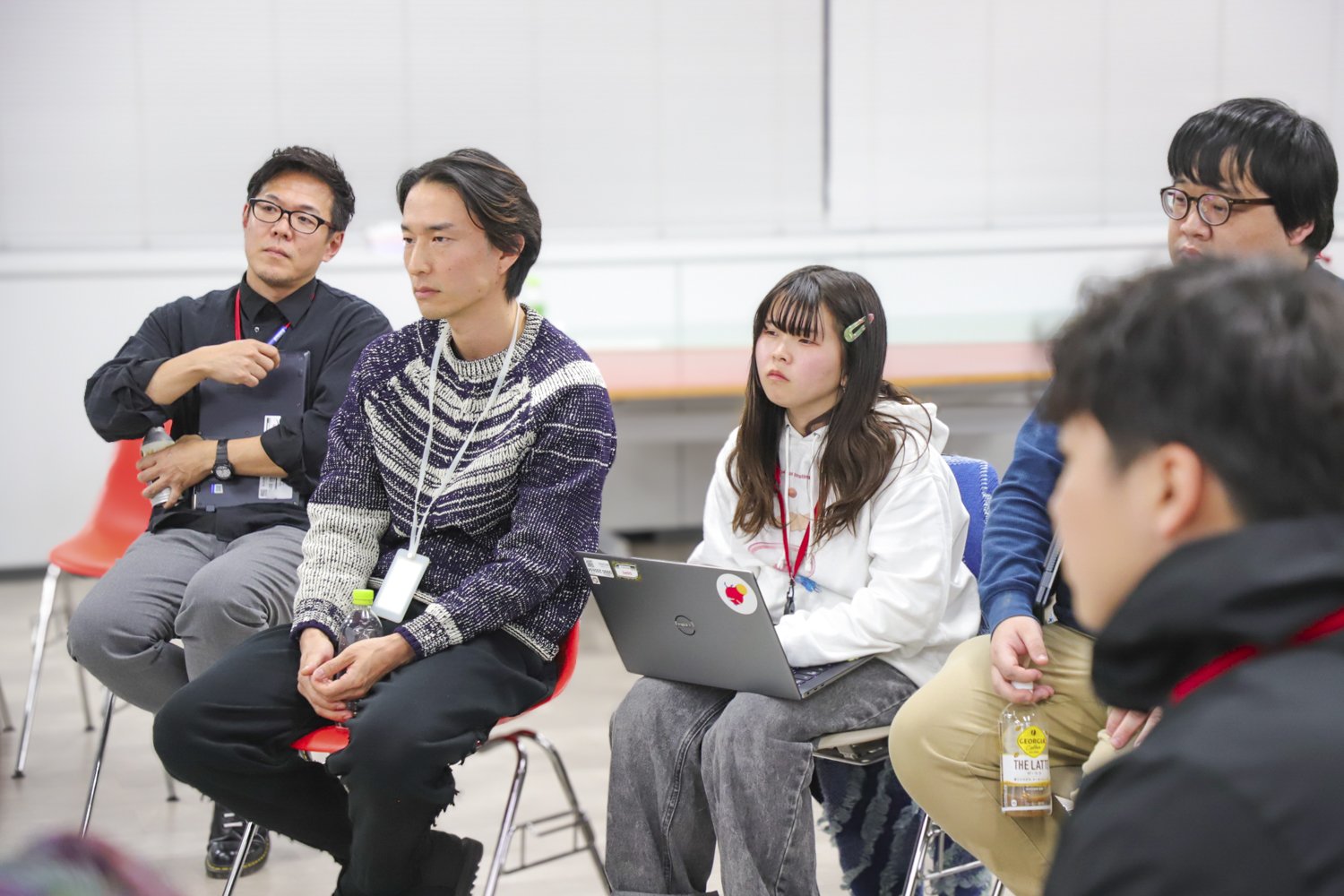
Q. How do you overcome creative blocks?
A. Here are some methods I recommend:
1. Taking a walk
2. Taking a day off
3. Practicing Zen meditation to reset and gain a new perspective
4. Talking with other creatives to gain fresh insights
5. Engaging in physical activities that temporarily pause thinking and refresh the mind
Q. Could you tell us about an experience that prompted you to reassess your approach to design?
A. A few years ago, I believed that I could create designs on my own that would have a significant impact on the planet and its people. However, this mindset led to immense pressure, and ultimately, I burned out. I became ill for several months and was unable to work or even maintain daily life. During the year-long recovery process, I spent a lot of time reflecting. Through that reflection, I came to the realization that true impact on the environment and society cannot be achieved alone--collaboration is essential.
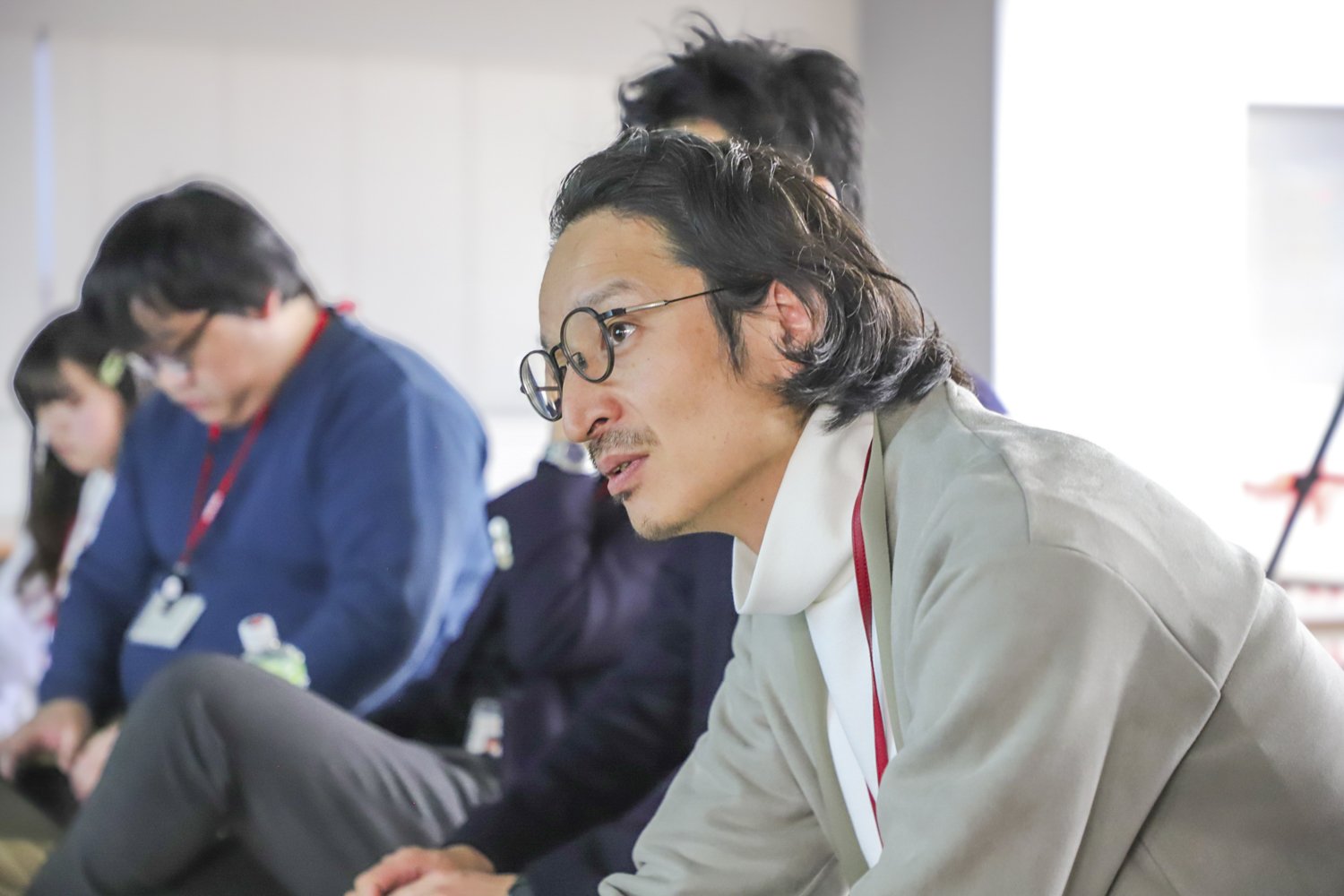
Q. How should we go about building connections with collaborators?
A. Successful collaboration begins with effective communication. Therefore, I recommend first improving your communication skills. Try practicing communication with people from diverse backgrounds, cultures, and professions. Since you never know who you might collaborate with in the future, such practice will broaden your opportunities to meet a wide range of potential partners.
It is also important to choose collaborators with whom you can speak comfortably and who mutually recognize each other's skills. This kind of relationship enables open and honest communication, which in turn enhances the speed, efficiency, and outcomes of your projects.
Q. Among so many issues, how should we choose a theme to focus on?
A. I believe it's best to choose the issue that you are most deeply interested in--something that you simply can't stop thinking about. What matters most is whether you feel passionate enough about the issue to devote yourself to exploring solutions or proposals for it.
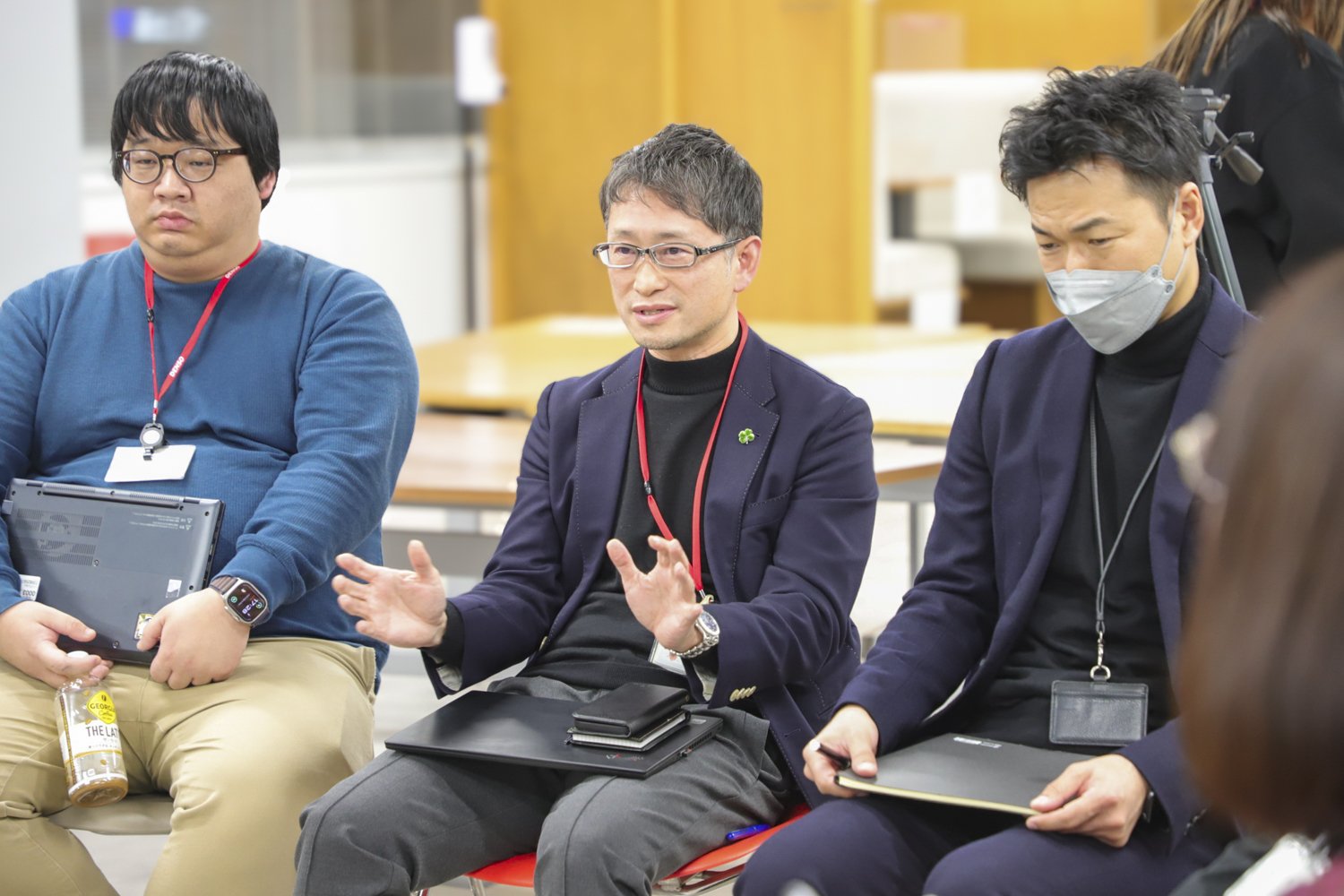
Q. What would you like to share with future designers and artists?
A. I would like to share the following messages:
Be more critical in your thinking.
Embrace a greater sense of playfulness.
Explore how to fully realize your humanity and your potential as a designer.
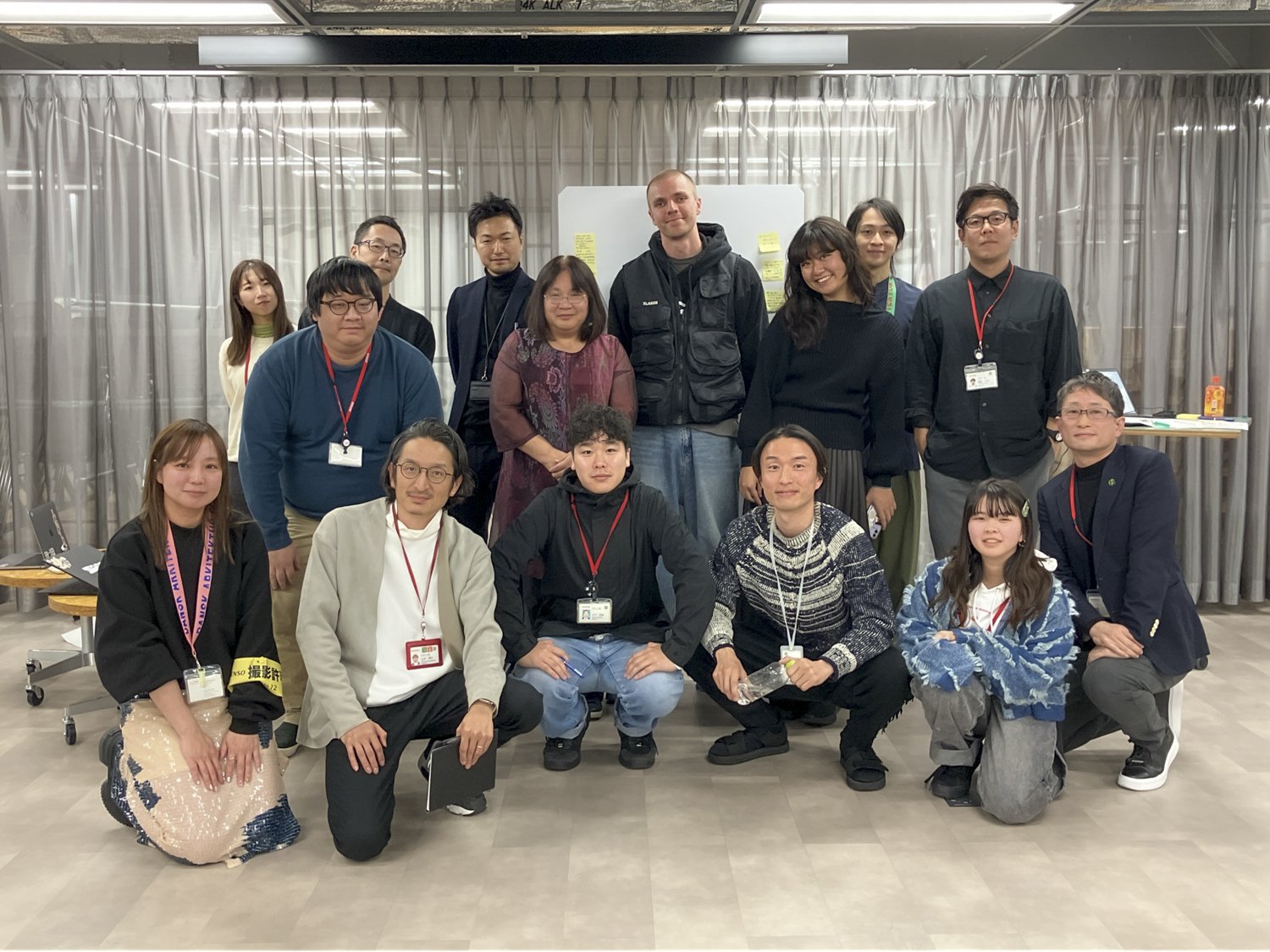
Reflections on the Event
This event served as a valuable opportunity for members of the DENSO Design Division to gain fresh perspectives. In particular, the discussions on "the importance of passion" and "the power of storytelling" left a lasting impression on the audience. Mr. Pavels' encouraging words--that even a small team in Japan has the power to make an impact on the world--also deeply resonated with the participants.
Through this event, I personally gained many insights as well. By sharing new ideas and perspectives with colleagues both inside and outside the company, I felt a strong sense of confidence that these exchanges will enhance our future work and projects.
Building on this experience, I hope to continue taking on the challenge of creating new value from DENSO by launching more creative projects and contributing to the realization of a sustainable society.
Speaker Profile
ounder of Inxects. A Swedish architect based in Copenhagen, Denmark.
His core mission is to minimize the gap between humans and nature through the practice of design. In 2021, he earned a Master's degree in Architecture and Extreme Environments from the Royal Danish Academy. His work spans concept development, strategy, and design, contributing to projects in architecture, infrastructure, mobile applications, and fashion.
After stepping away from the traditional architecture industry, he established a unique design approach called "Inxects." His work has been recognized by international awards such as the Design Educates Awards 2022 and the Lexus Design Award 2023. He was the first designer to receive the Lexus Your Choice Award at the 2023 Lexus Design Award.
Currently, he is engaged in transformative concept development for the offshore oil industry and is devising new strategies in the fields of circular economy and regenerative ecosystems. He is scheduled to exhibit at the 19th International Architecture Exhibition of the Venice Biennale in 2025.
A co-creative action design firm that draws inspiration from Nordic societies to initiate, support, and implement projects that begin with human intention. The firm provides support for creative talent development and organizational transformation across a diverse range of entities, including corporations, research institutions, universities, and local communities.
Other ActivitiesAll Activities
WorksAll Works







